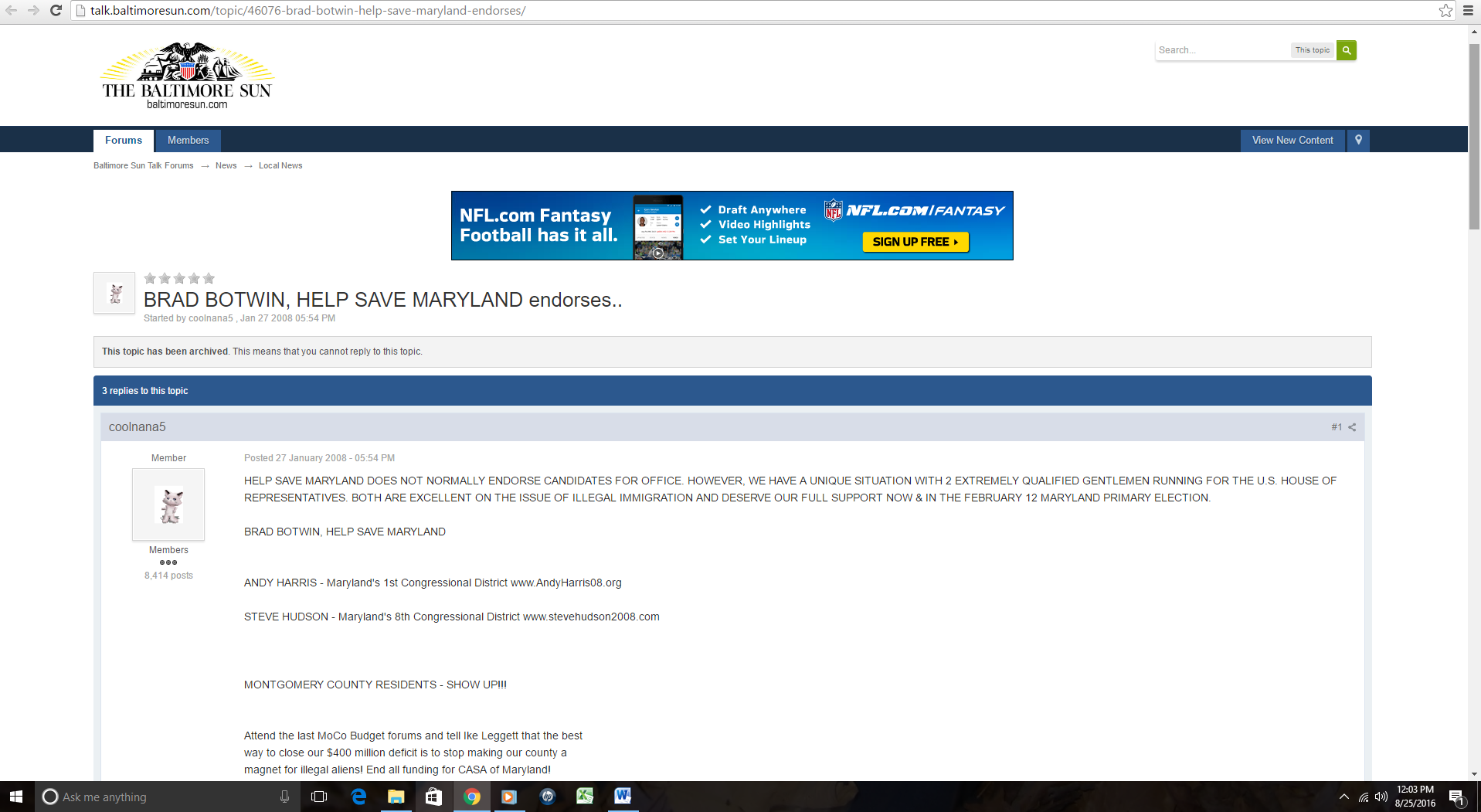By Adam Pagnucco.
Montgomery County is witnessing an historic craft beer renaissance. New small breweries are popping up all over the county offering an incredible array of IPAs, Belgian tripels, pilsners, ESBs, saisons, stouts and even rum rye. Politicians and customers alike are celebrating, even if they might be a wee bit late to work on the following day. But this renaissance has been caused by one factor that few so far are talking about.
These breweries are exempt from having to sell their products through the county’s Department of Liquor Control.

Montgomery County Executive Ike Leggett and members of the County Council at a ribbon cutting for Brookeville Beer Farm. Photo courtesy of Delegate David Moon.
Until recently, there were three small breweries in MoCo: Growlers in Gaithersburg, Rock Bottom in Bethesda and Gordon Biersch in Rockville. The latter two are part of chains. While each establishment could sell to individual customers, they had to go through the Department of Liquor Control (DLC) to sell to restaurants and retailers. For the most part, it wasn’t worth the bother.
That changed in 2014 when a group of craft brewers wanted to open Denizens Brewing Company in Downtown Silver Spring. The condition they imposed was that the DLC must not be allowed to carry their beer. Denizens co-owner Julie Verratti told the Sentinel, “There’s no freaking way in hell I would ever trust my product to the Department of Liquor Control.” According to the article:
Veratti said the main reason she does not trust the DLC to deal with her product is because she believes the warehouse employees would not properly handle it.
“It’s not their product so they don’t give a sh**,” Veratti said. “They don’t care if it sits out and I doubt half the people in the warehouse have knowledge of how to handle beer.”
Paul Rinehart, founder of Baying Hound Aleworks, whose brewery had to go through the DLC prior to the change in law, called using the DLC as a distributor “not fantastic.”
Rinehart said when using the DLC his brewery “ran into issues where our product would get lost” and would often hear from clients that their product orders had been either delivered incorrectly or not delivered at all.
Despite the DLC upgrading their inventory system to Oracle, which rolled out on Feb. 1 and has its own problems, Rinehart said he has no plans to use the DLC to distribute again.
“I’m just afraid of my product getting lost again,” Rinehart said.
The result of Verratti’s advocacy was a 2014 state bill that allowed micro-breweries to bypass the DLC and sell craft beer directly to restaurants and retailers as well as on-site customers. This was the key reform that enabled Denizens to grow in MoCo. Once again, from the Sentinel:
Had it not been for the change in law that gave breweries the ability to deliver their product directly to their customers, Julie Veratti, co-owner and director of business outreach for Denizens, said her brewery would not have distributed inside the county at all and instead would have just distributed the product to Washington, D.C. Denizens opened for business after the change of law came into effect.
And so MoCo micro-breweries are now free of DLC entirely. Disasters like DLC’s week-long meltdown in last year’s holiday season do not affect them at all.
The result of all this is a BOOM in craft brewing. Since the DLC exemption was passed, Denizens (Silver Spring), 7 Locks (Rockville), Waredaca (Laytonsville) and Brookeville Beer Farm (Brookeville) have opened. A fifth brewery attempted to open in Rockville but encountered permitting and zoning issues with the city government and moved to Baltimore. The chart below shows all active licenses and permits pertaining to MoCo microbreweries. Fifteen of eighteen originated in 2014 or later.

The lesson to be learned here is that removal of the county’s liquor monopoly leads to economic growth and job creation. Those are important considerations for a county that has seen its private sector jobs base shrink between 2001 and 2014 and has just raised property taxes by 9 percent. The state’s Bureau of Revenue Estimates has found that the county could create more than 1,300 jobs and nearly $200 million in annual economic activity by tossing its liquor monopoly into the dustbin of Prohibition.
Will the county embrace economic prosperity and job creation? Or will politicians continue to defend the monopoly while cutting ribbons for breweries who are exempted from it?


